Author: Will Lovell
When I first made the switch to all grain, I went with the batch sparge approach using a converted cooler MLT, a separate stainless kettle, and propane burner. While arguably less complicated than a 3-vessel continuous sparge setup, I found it left much to be desired – an open flame with kiddos running around seemed like a recipe for disaster!
I’d become aware of electric brewing systems pretty early on in my homebrewing journey, but most were either hodgepodged together and quite convoluted or too cost prohibitive to get into. Moreover, I don’t have access to a 220v circuit and wasn’t interested in paying to have it added to my house. Thankfully, as interest in electric homebrewing began to grow, so too did options that were much more approachable, offering compact systems that could be effectively run off of a standard 110v circuit.
Based out of Chicago, IL, Delta Brewing Systems began selling a handful of quality homebrewing products in 2019 and has steadily increased their offerings. In addition to their stainless kettles, 8 gallon/30 liter FermTank, and convenient BrewTable, Delta Brewing Systems was quick to jump into the electric game with their 110v 10 gallon/38 liter All-In-One (AIO) system.
Not long after joining Brülosophy, I mentioned to the crew my interest in converting to electric, which is when I learned Delta Brewing Systems had been looking for someone to put their relatively new electric AIO through the paces. While admittedly hesitant based on my lack of experience with this relatively new company, I figured I had little to lose and agreed to give them whirl!
The product reviewed for this article was provided by the manufacturer in exchange for an honest review; no other compensation was provided. The opinions expressed in the article are solely those of the author and a concerted effort was made to approach the review from an unbiased perspective.
Immediately upon receiving the well packaged Delta Brewing Systems AIO units, I unboxed them and found them to be in pristine shape.
Conveniently, the AIO comes with some a stainless immersion chiller, mash paddle, and mesh hop spider.
A look inside the kettle revealed embossed volume markings, which my own testing indicated were quite accurate, as well as an included bazooka tube to aid in reducing the amount of particulate that makes it to the fermenter.
The second most dominant piece of equipment that comes with this system is the grain basket, which holds the grain during the mash then gets easily removed prior to the boil. An overflow tube in the center of the grain basket helps to prevent scorching on the burner. On the outside of the unit is a fixed recirculation arm, through which wort gets continuously pumped during the mash rest.
Once plugged in, the control panel lights up a bright shade of blue with clean black lettering. From here, the user is able to select their preferred burner wattage from 100w to 1800w, set specific temperatures, and choose the amount of time the temperature is to be held at each step. Whereas there is manual mode where the brewer to fully controls every part of the process, the automatic mode allows the user to seamlessly automate their brew day with various options.
The unit has 2 switches, one for the pump and one to turn the control board on.
A standard ball valve allows for easy and clean wort transfers.
System Performance
In the year I’ve been using the Delta Brewing Systems AIO unit, I’ve learned a few things. While it can handle a full volume mash, this is only the case for lower strength beers or smaller batch sizes, hence I still mostly rely on a simple sparge step. I’ve also found that the full 1800w is required to achieve a rolling boil on a full 5 gallon/19 liter batch of wort, whereas lower wattage works during the mash step.
For a typical brew day, I start by collecting the mash water, which is usually close to the full volume needed for the batch, then setting the controller to full power. As the water is heating up, I add my desired brewing salts, weight out and mill the grain, sanitize my fermenter, and prepare the kettle hop additions. It usually takes about 45 minutes for the water to reach my desired strike temperature, at which point I drop in the filled grain basket.
Once the grist is fully incorporated, I turn the recirculation pump on, reduce the power to 600w, and set the controller to maintain my desired mash temperature. When the mash step is complete, I pull the grain basket it out and rest it above the kettle before pouring the relatively small volume of heated sparge water through the grains.
With the proper pre-boil volume in the kettle, I set the controller to full power in order to heat the wort. While waiting for the wort to reach a boil, which takes approximately 40 minutes, I clean the grain basket. During the boil, I add the hops to the stainless mesh hop spider to reduce the risk of a clogged pump, then attach the whirlpool arm in preparation for chilling the wort.
Following the boil, I chill the wort before transferring it through the ball valve to a FermTank.
At this point, all that’s left is cleaning the unit, which couldn’t be simpler! I add a few gallons of water to the kettle, combine it with some Exchilerator Brewery Wash, and set the controller to 150°F/66°C. When the cleaning solution is hot, I scrub the sides and bottom of the kettle before draining the solution and giving it a final rinse.
| The Verdict |
Despite my concerns about making the move from propane, which I knew well, to electric, my transition to the Delta Brewing Systems AIO was about as seamless as it gets. Given the surprisingly low price of this unit, I’ll admit to having some concerns about its longevity, but in the nearly 30 batches I’ve put through it, I’ve not had a single issue. The controller, element, and pumps all work beautifully, the stainless steel has maintained its shine, and the accessories do what they’re intended to do.
The only real drawback to this unit is the time it takes to heat water and wort, but I understood this would an issue before receiving the AIO, as it is a 110v system with a max of 1800w. Even with the slightly extended heating times, I’m finding that my brew days are less hectic and end sooner than batches brewing on my old propane setup. One time-saving trick I employ involves preparing my water the night before brewing and programming the controller to start heating it up early, that way it’s at strike temperature when I’m ready to brew.
Another minor criticism I have about this unit has to do with the volume markers. While my measurements have proven them to be pretty accurate, the lack of 0.5 gallon or 1 liter markings forces the user to either guesstimate specific volumes or use an external container for accurate measurements. Since I pre-measure my brewing liquor in another vessel anyway, this hasn’t been much of an issue for me, but it may be for others.
Overall, for a unit that goes for under $500, I feel the Delta Brewing Systems AIO is a pretty incredible for what it offers. Other outfits offer similar units for a similar price, but don’t include all the goodies like a neoprene jacket, stainless hop spider, wort chiller, whirlpool arm, and mash paddle. Considering my massively positive experience with this unit, I have no qualms recommending it to those interested in electric brewing and am confident it’ll do for others as it has done for me.
The Delta Brewing Systems 110v Electric Brewing System is currently available for purchase at DeltaBrewingSystems.com. If you have any questions or thoughts about this product, please leave them in the comments section below!
Support Brülosophy In Style!
All designs are available in various colors and sizes on Amazon!
Follow Brülosophy on:
FACEBOOK | TWITTER | INSTAGRAM
If you enjoy this stuff and feel compelled to support Brulosophy.com, please check out the Support page for details on how you can very easily do so. Thanks!


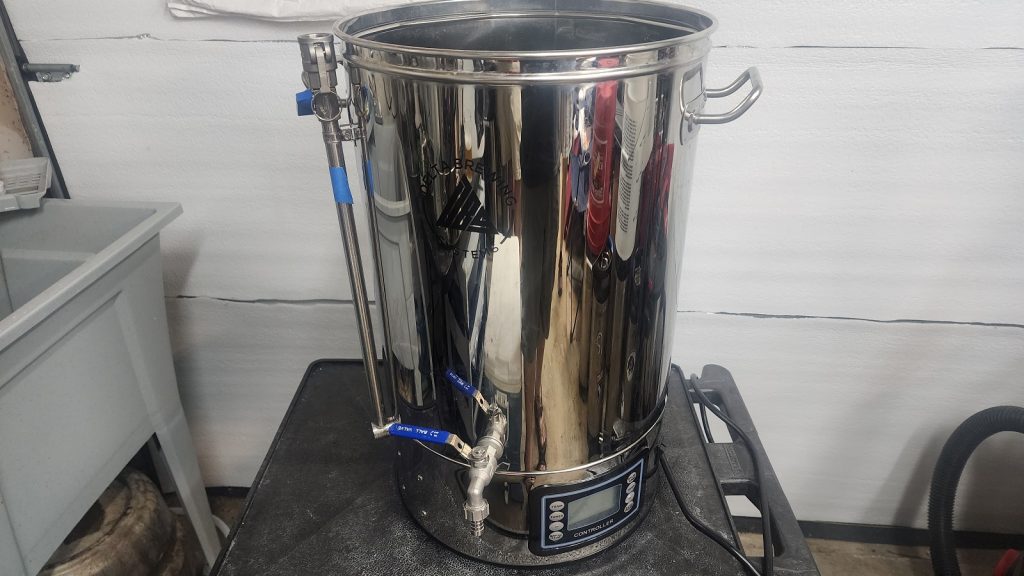
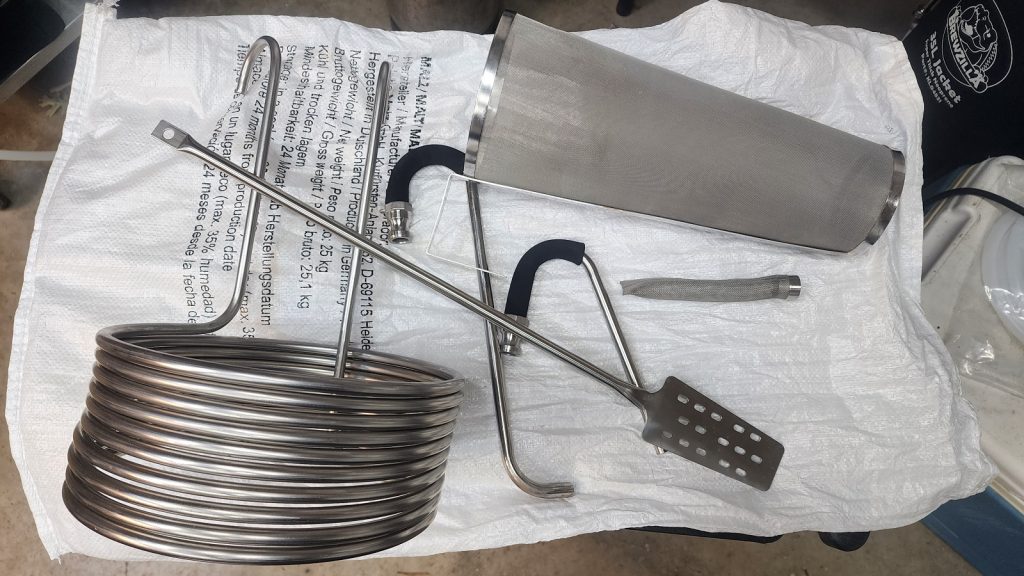
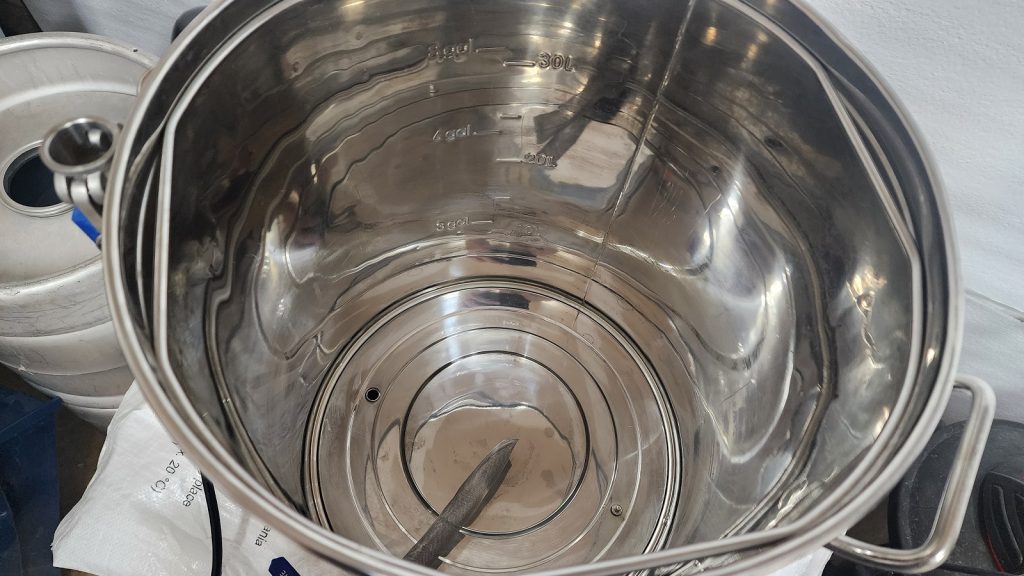
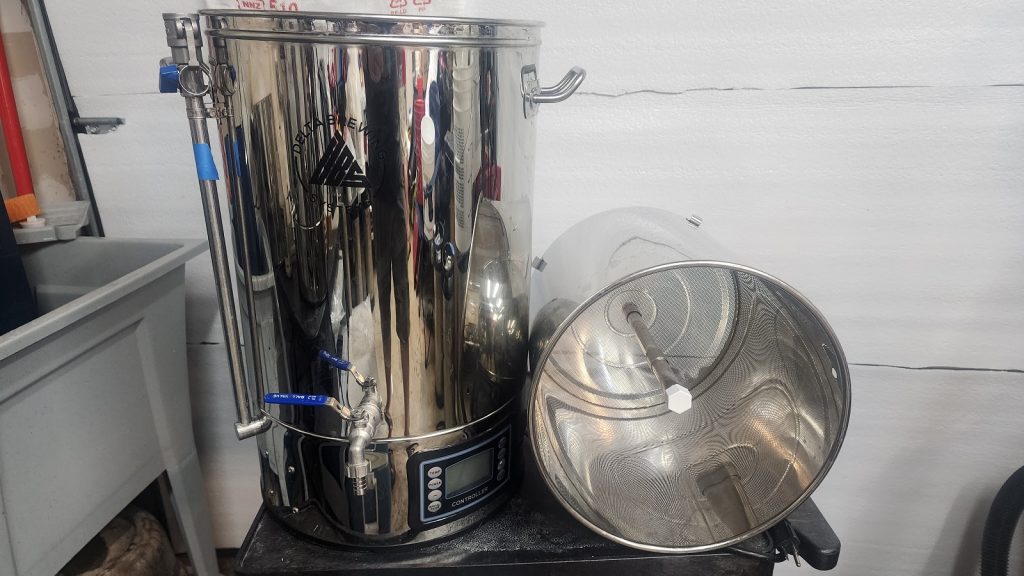
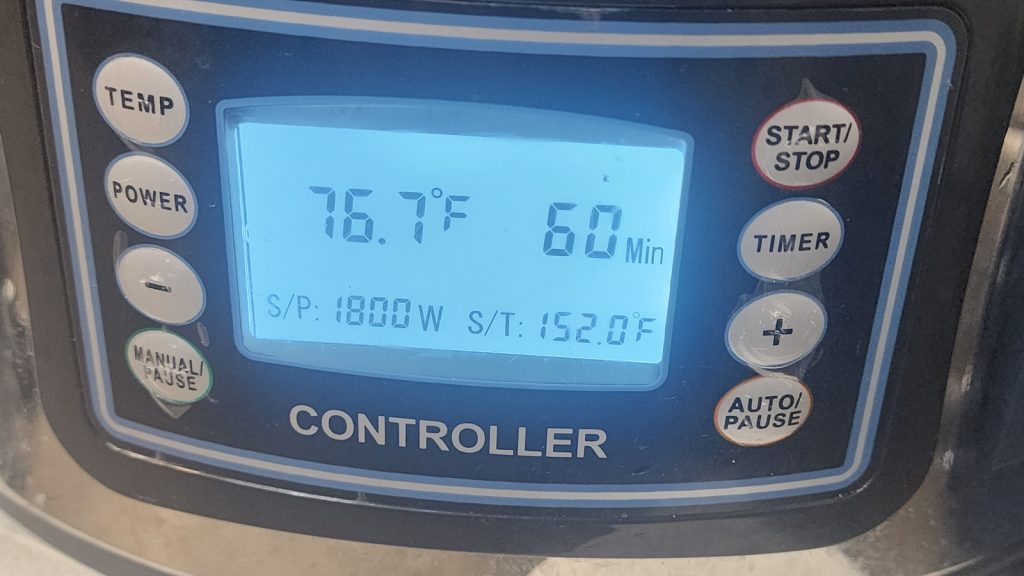
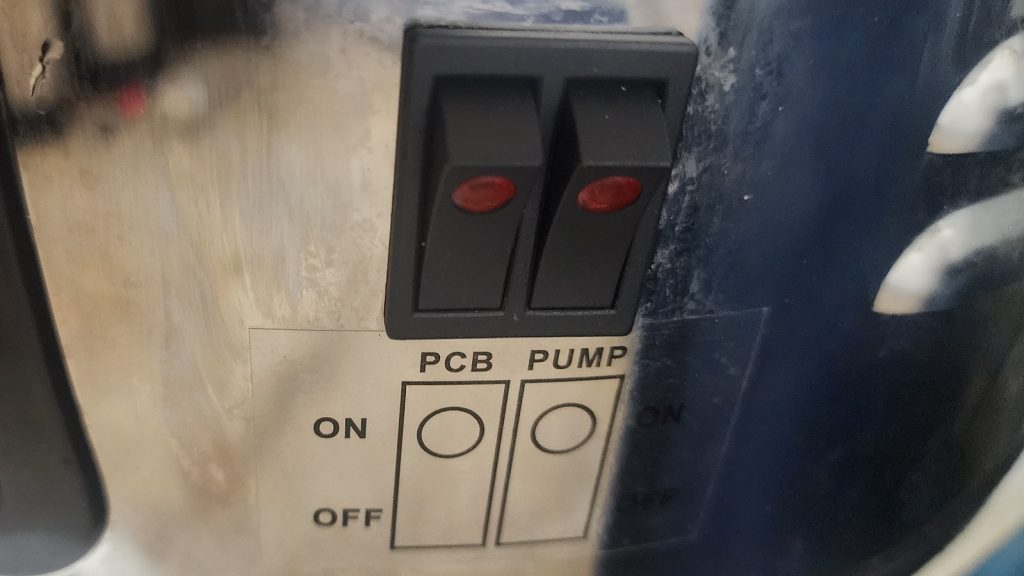
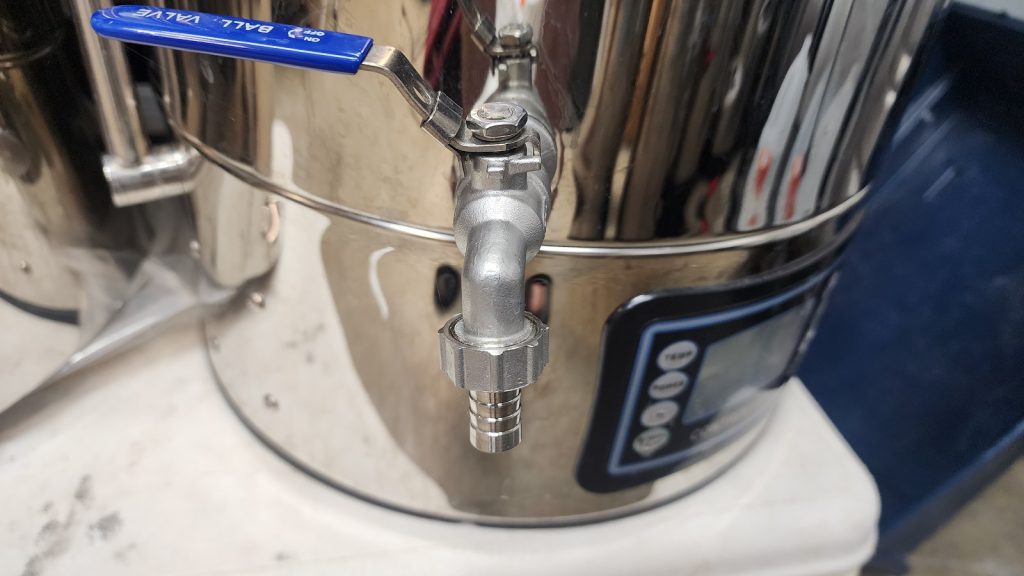

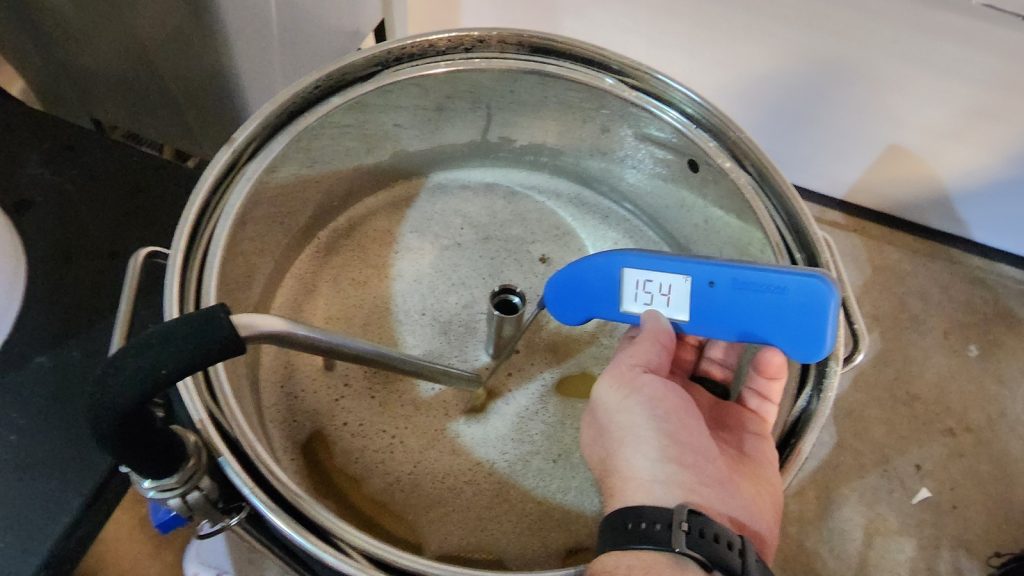
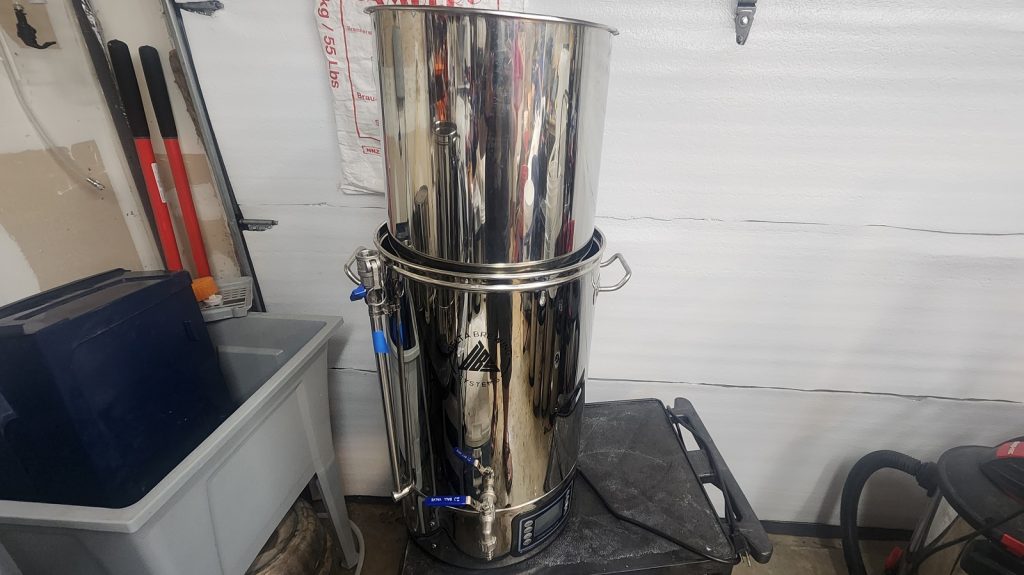
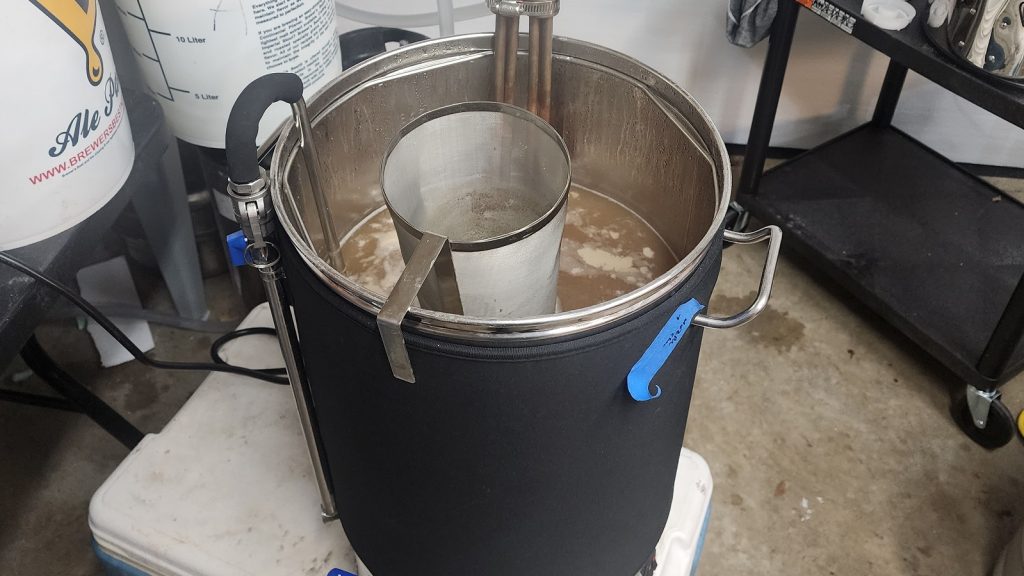
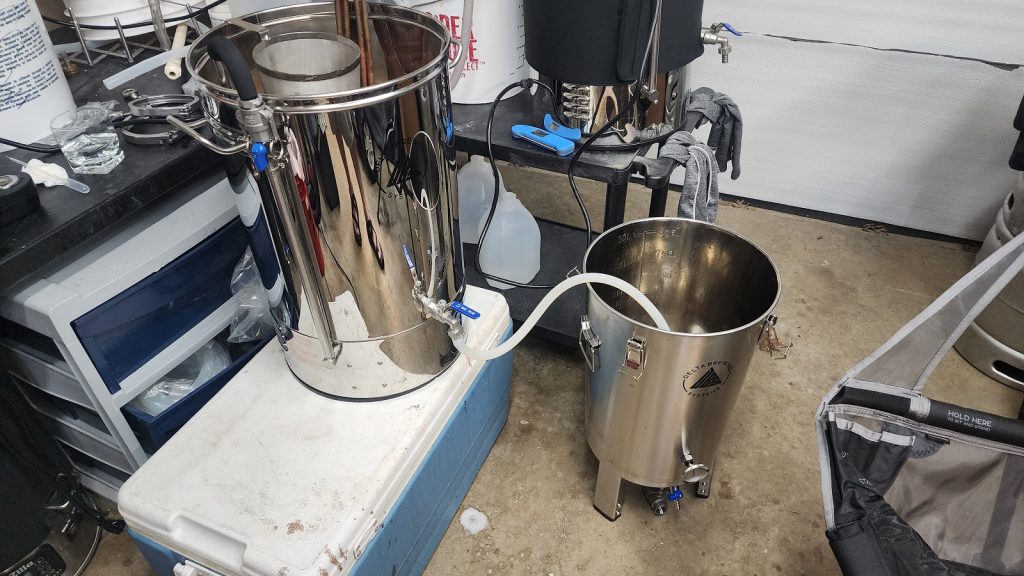







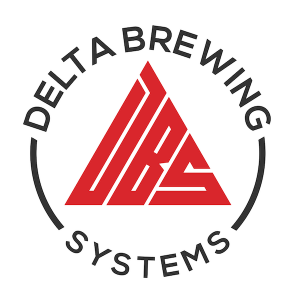


7 thoughts on “Product Review | Delta Brewing Systems All-In-One (AIO) 110v Electric Brewing System”
Thanks for the write up. Sounds like a nice system. Do you know what the smallest size batch it could reasonably do?
I mostly do 5 gallon batches, so I can’t answer this from experience, but if you look at the description on their website, it says ‘Recommended max/min grain bills ~ 18lbs/7.5lb’
Markings were quite accurate? Interesting. Mine are more than 0.5 gal off the real volume.
Honestly, the markings on mine seem OK, but they are not entirely useful since they’re so far apart to get any kind of precise measurement. I still wind up either weighing my water or measuring the volume in a separate vessel.
Their website gives no info on how small a batch it can handle. I do mostly 3 g batches theses days, how do you think it would work with the smaller volume?
I mostly do 5 gallon batches, so I can’t answer this from experience, but if you look at the description on their website, it says ‘Recommended max/min grain bills ~ 18lbs/7.5lb’
Vevor makes one almost identical to this, which I am not sure is a knockoff of Delta or vice versa. I have the Vevor and it works well.